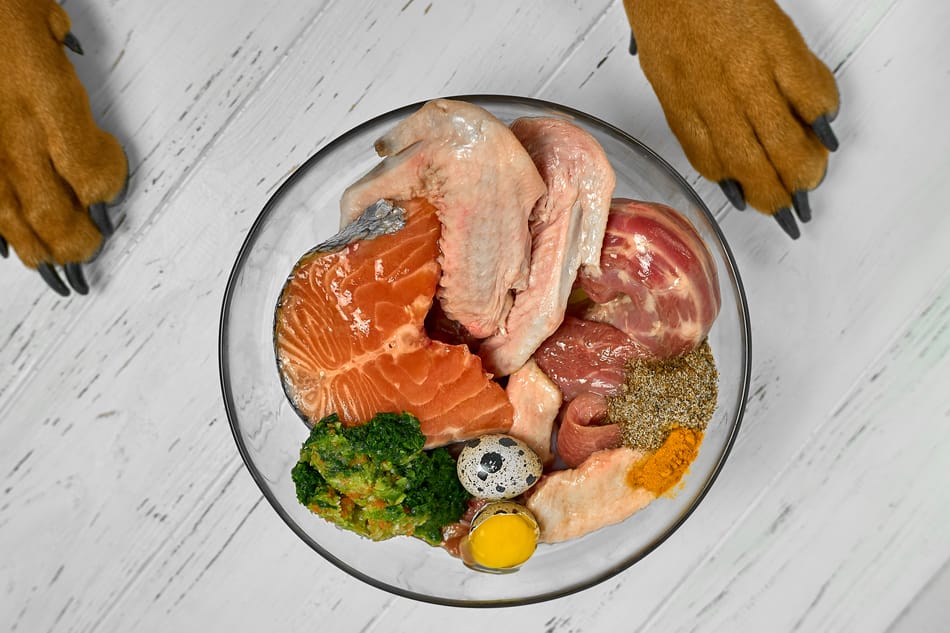
Many loving owners of Dobermans out there are unaware of whether or not Dobermans can, or should, eat raw meat. Did you know that there is actually a whole movement in recent years all surrounding the benefits of feeding your Doberman a raw diet, including meat? Well, there is, and it’s gaining momentum quickly. Many canine nutritionists now argue that it’s actually the healthiest way to feed your Doberman.
Can a Doberman eat raw meat? Doberman Pinschers are capable of eating and digesting raw meat without any problems. Raw diets are gaining in popularity and while many contend that they are beneficial to your Doberman, many others question the safety of a raw diet for dogs.
So we know that a Doberman can eat raw meat, but does that mean you should feed your Doberman raw meat? Feeding a Doberman only raw meat will not constitute a balanced diet and could even be harmful to your dog. However, a balanced raw diet may be beneficial. Raw diets are a hotly debated and controversial topic in the Doberman community.
In this article, we’ll have a look at what this raw diet trend is and what both sides have to say about this issue so you can decide if feeding your Doberman a raw diet is right for you.
Raw Diets for Dobermans
This trend in Doberman diets has been around for a long time, but it has only gained steam in recent years. Raw foods have been fed to other dogs for a long time now—including sled dogs and racing Greyhounds. But now, many individual pet owners have taken to this way of feeding, and the most popular raw diet is the BARF diet.
B.A.R.F. stands for “Biologically Appropriate Raw Food” and “Bones and Raw Food”’ (Source). Dr. Ian Billinghurst, the veterinarian, and nutritionist who developed this feeding program wanted to support dogs by providing them with a diet like their ancestors the gray wolves naturally evolved to eat—a raw diet of foods that are found naturally in the wild.
Raw food diets for Dobermans are said to have the following benefits:
- Healthier skin and shinier coat.
- Better digestion.
- Leaner and more muscular build.
- Improves dental health—reduces plaque buildup on teeth, fresher breath, etc.
- Smaller stools due to more of the food being absorbed into the body.
- Reduces allergies due to no preservatives or additives.
- Improved weight management.
- Promotes a stronger immune system.
- Allows you to know exactly what your dog is eating.
Dobermans and other dogs who eat a raw diet would be fed not just fresh, raw meat, but also uncooked vegetables, fruits, bones, and seeds and nuts as well. A B.A.R.F. diet has a set guideline that ensures a measured balance of ingredients that introduces the correct amount of essential nutrients in every meal.
Proponents of this diet say that a raw diet is closer to what dogs eat naturally in the wild, and it has been fed to competition dogs for generations for a good reason. They say it’s “safer” than feeding store-bought food since you know exactly what’s in it and you don’t have to worry about all the pet food recalls. Also, a properly balanced raw food diet will give your dog all the nutrients and vitamins that their bodies are meant to have—straight from their natural source.
They may also tell you that not having processed foods in your dog’s diet is a major plus and they argue that the only studies and other information you hear saying that raw diets are unsafe are (at least partially) influenced by large dog food manufacturers. Lastly, they say the “proof is in the pudding”, and a Doberman on a raw diet is far healthier (in appearance and internally) than one who eats store-bought food.
TIP: If you’re like me and don’t have the time to learn all the nuances of canine nutrition (or the money to hire a canine nutritionist), check out Ollie’s fresh human-grade food service. They’re one of the most reasonably priced fresh-food delivery services for your dog, proven safe, and highly customizable. You can make meals specifically formulated for your specific Doberman based on weight, activity level, health, and more. Only real ingredients like you’d find in your own kitchen with no fillers, preservatives, or artificial flavors.
A Better Alternative: Ollie’s Human-Grade Food
If you’re not a veterinary nutritionist and want to avoid the potential risks of feeding your Doberman raw meat—such as bacteria, parasites, and dangerous bones—consider using Ollie instead. They offer a fresh, human-grade dog food subscription service that’s perfect for this breed.
Their meals meet rigorous standards, they’re slowly cooked at low temperatures to make them safe but also retain as much nutritional value as possible, and they contain real ingredients like you’d find in your kitchen with no preservatives, artificial flavors, or harmful fillers.
Real meat like fresh beef, turkey, chicken, lamb, and pork is the first ingredient in ALL their meals.
These meals are also designed with veterinary nutritionists and your meal plan will be customized to your specific dog, just answer a few questions at sign-up. This is a great middle-ground that’s a no-brainer and still with TONS of benefits. You can click the picture below and learn more (this is an affiliate link that will take you straight to Ollie):
TIP: Use our coupon code “DOBERMANPLANET” to get 60% off your first box.
How Much Raw Meat Should Your Doberman Eat?
Raw meat is only one portion of a balanced raw diet. You should never just feed raw meat alone with nothing else in the dog’s diet. That would be dangerous and very unhealthy for your dog in the long run.
Too much raw meat, besides being unhealthy, can lead to increased gas in your dog and we already know how bad gas buildup can be in Dobermans. If you want more info on gas buildup and how to reduce it, see my article Doberman Farting All the Time? Here’s Why.
A balanced raw diet typically consists of a certain percentage of raw muscle meat, edible bones, liver, other organs, vegetables, seeds, nuts, and fruit. The amount of this raw food that you feed your Doberman will depend on many factors.
To determine how much of a balanced raw food diet to feed your Doberman, start by basing it off of your dog’s weight and then adjust as needed for their individual requirements.
How Much Raw Food to Feed Your Doberman
Below are the amounts of raw food that you should typically feed a dog based on their weight. This is just a general guideline that’ll get you to a good starting point but these are not precise numbers since ingredients, muscle mass, activity levels, age, and many other factors will impact how much raw food you should feed your dog.
IMPORTANT: Always consult with a professional such as a veterinarian or canine nutritionist before starting or changing your dog’s diet, especially when feeding raw. At Doberman Planet, we are dog trainers, not veterinarians or nutritionists.
| Dog’s Weight | Food Per Day | Food Per Week | Food Per Month |
|---|---|---|---|
| 10 lbs | 0.3 lbs | 2.25 lbs | 10 lbs |
| 25 lbs | 0.7 lbs | 5 lbs | 20 lbs |
| 50 lbs | 1.1 lbs | 8 lbs | 32 lbs |
| 75 lbs | 1.5 lbs | 10.5 lbs | 42 lbs |
| 100 lbs | 1.9 lbs | 13.5 lbs | 54 lbs |
One easy way to feed your Doberman a healthy, human-grade food diet while making sure they get all the nutrition they need is to get a fresh human-food delivery service that customizes the meal plans to Dobermans specifically. Many Doberman owners use Ollie for fresh, easily prepared meals delivered automatically to their homes.
If you’re feeding a young puppy, he should eat approximately 2.5 times the amount of an adult dog at the same weight. So if your puppy weighs 10 pounds, he should eat approximately 0.75 pounds per day, 5.6 pounds per week, or about 25 pounds per month.
Always consult with a canine nutritionist or veterinarian before beginning a raw food diet. This is especially important if you plan to feed the diet to a puppy, a pregnant dog, an elderly dog, or one with a medical condition.
TIP: If you’re considering a fresh food option for your Doberman, great! It can make a huge difference in so many aspects of life with your dog. Consider Ollie, they ship straight to your door, they expertly balance the vitamins and nutrients, and they’ll customize a plan for your specific Doberman!
Use Coupon Code “DOBERMANPLANET” for 60% Off Your First Box!
(Click below to try it for your Doberman)
Ratios
If you decide to feed your Doberman a raw diet, the majority of what you feed him or her should be fresh meat. This meat should be muscle meat, secreting organs, and even meaty bones. Specifically, on a daily basis, your Doberman should eat the following ingredients in measured ratios:
| Ingredients | Ratio | What it Provides |
|---|---|---|
| Raw muscle meat | 70% | Protein, amino acids, and vitamins. |
| Raw edible bones | 10% | Calcium, phosphorus, and other nutrients. |
| Vegetables (green) | 7% | Essential nutrients. |
| Liver | 5% | Vitamin-A and other vitamins. |
| Other secreting organs (i.e. kidney) | 5% | Vitamins that complete the Nutritional Research Council’s requirements for dogs. |
| Seeds & Nuts | 2% | Minerals, fatty acids, and vitamins. |
| Fruit | 1% | Antioxidants. |
Note: The above table is based on the B.A.R.F. raw diet.
Eating a balanced diet with these ingredients will reduce the amount of processed foods, carbohydrates, fillers, and animal byproducts your Doberman ingests. Any exclusions of the above ingredients could result in a diet that’s deficient in some of the essential nutrients your Dobie needs. For more information about a raw diet such as the example shown here, see this resource on the site perfectlyrawsome.com.
It’s also important to note that your Doberman’s weight and age should always be taken into account when calculating how much raw meat to feed. Fortunately, there are online calculators that can help you figure most of this out on your own, and, of course, your veterinarian is a great resource as well.
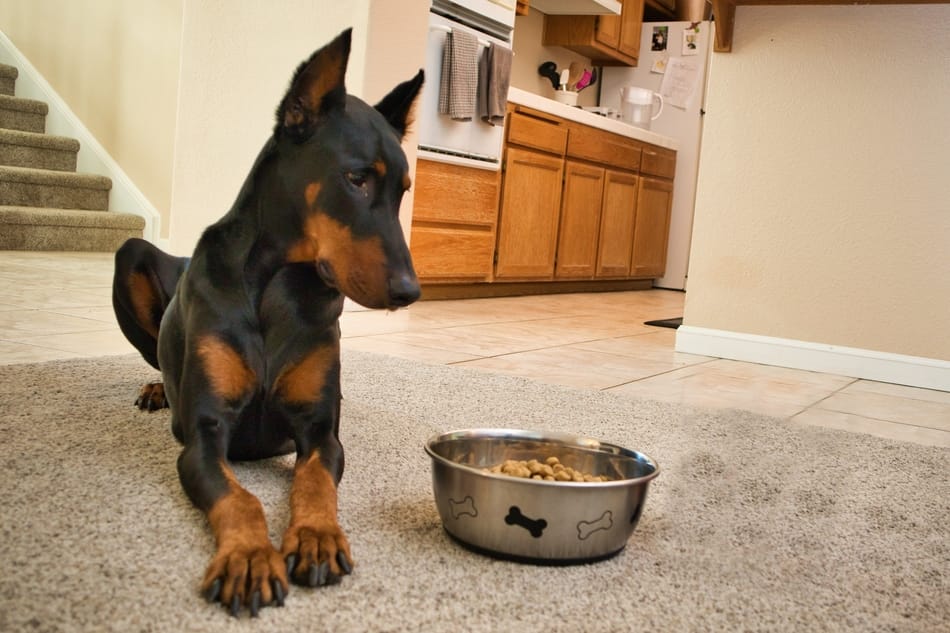
The Argument Against Feeding Raw
I’ve told you what proponents of raw food say, and now I will present the other side of the coin—what those against feeding a raw diet have to say, so you can decide for yourself.
First, they may tell you that dog food manufacturers spend millions of dollars perfecting their foods over the years and testing them to produce the best food possible (competition at it’s best). It just isn’t possible for average dog owners to come up with formulas that are better than the dog food manufacturers who have expensive research and development laboratories dedicated to this sole purpose.
Also, the Doberman is not a wolf or wild dog. Once domesticated, dogs have evolved in such a way that is further from wild dogs, and are more able to digest much of what we humans eat, including starchy carbohydrates.
There are also added health risks for dogs who eat a consistently raw-meat-based diet and these risks affect other dogs and even humans as well. The CDC has warnings about raw dog food diets on their website here. The American Veterinary Medical Association has also warned about the dangers and discourages owners from feeding their dogs raw, as noted on their website here. Lastly, feeding a raw diet is much more time-consuming with preparation and almost always more expensive than using commercially available dog foods.
“A two-year study conducted by the U.S. Food and Drug Administration from 2010 to 2012 found that raw pet food is more likely than other types of pet food to carry bacteria, including Salmonella and Listeria monocytogenes that cause foodborne illnesses.”
– U.S. Food and Drug Administration (Source)
So, even though your Dobie may not get food poisoning, he could pass any lurking bacteria on to other dogs or even to people with whom he or she comes in contact. That’s why many officials don’t recommend feeding your dog a raw diet with children, or immune-compromised people in the home.
Finally, while feeding your Doberman a meat-laden bone every day may make for a happy dog, doing so may also inadvertently cause your pup some serious complications. Fragmented pieces of the bone could cause intestinal damage. It’s critical to know what your Doberman can break up with his or her teeth as well as digest safely and efficiently.
Should You Feed Your Doberman a Raw Diet?
That decision is completely up to you and there are certainly great points made by people on both sides of the argument. I can’t tell you what’s right for your Doberman, but what I can say is that if you are in doubt about what’s best, it may be a good idea to talk to a canine nutritionist or stick with a reputable business that will customize nutritious meals and ship them right to your door each week, such as the Ollie dog food service (recommended often in the Doberman world). Ollie slow-cooks their food to make it safer, while still preserving the important nutrients. There’s really nothing else like it and that’s why I always recommend Ollie to owners of Dobermans.
A canine nutritionist will be able to give you invaluable advice. They will take into account your Doberman’s age, health history, physical fitness level, exercise levels, and a myriad of other factors. Then they will be able to tell you what is right for your dog and if they do suggest a raw diet, they may be able to give you specific meal plans that are perfectly tailored to your dog. That would be money very well spent!
Safely Feeding Your Doberman a Raw Diet
If you do decide to feed your Doberman a raw diet, there are ways to be proactive and to mitigate, or possibly prevent, many of the issues that could arise along the way. Some of the precautions that you should take are:
- Keep raw meat frozen until you’re ready to use it.
- Handle raw meat carefully and be sure not to allow any of the juices from the meat to splash onto countertops, other foods, or surfaces.
- Always store your dog’s raw foods separate from human food to prevent cross-contamination.
- Don’t kiss your dog around his mouth or allow him to lick you. Especially directly after a meal.
- Clean and disinfect all surfaces that come into contact with raw ingredients.
Just remember that safety should come first and foremost when handling raw ingredients. This is true with raw dog food ingredients or even just raw human food. This is especially important if you have kids or elderly in your household.
If You Decide to Stick with Commercial Dog Foods
A majority of Doberman owners will decide to simply use commercially available dog food for their dogs. If you decide to take this route, make sure you do some research and find a food that has proven successful with other Doberman owners. You’ll want one with the right balance of nutrients, minimal (or better yet, no) recalls in it’s past, has undergone real-world feeding trials, meets World Small Animal Veterinary Association (WSAVA) guidelines, and something that is of very high quality. Also, it’s important to avoid grain-free diets as they have been shown to be linked to dilated cardiomyopathy (DCM) in Dobermans, which is something they are already prone to.
As I continue to research the latest dog foods available out there for Dobermans, I keep my latest recommendations listed on my best Doberman food and treats page. At any time, my top choice for commercially available dog food that I feel is best for Dobermans is listed on that page.
If new research comes to light or a better dog food becomes available, I will update my top dog food suggestion on that page as necessary so that it always reflects what I feel is the absolute best food available specifically for Dobermans.
Some Doberman parents give dogs the best of both worlds, offering a combination of dry kibble and a blend of raw meat and other fresh food items. If you do this, keep in mind that raw food digests much more quickly than typical dog kibble does. Therefore should not be eaten together in the same meal. You can, however, feed your Dobie one option in the morning and the other option in the evening. This would allow each meal to properly digest before the next one is consumed.
If you are concerned about your Doberman’s health, my recommendation is to start by doing a simple genetic DNA test on your dog to get an idea of what’s going on under the surface, and then focus on getting their diet dialed in. Check our Doberman DNA Health Testing Guide here for a simple solution for this.
Final Thoughts
What you feed your Doberman Pinscher is a personal choice best guided by your veterinarian or a canine nutritionist. However, there are definitely some tried and true dog foods commercially available that have worked well for Doberman owners for many years.
However, if you do decide to feed your Doberman a raw diet, it’s important to get input from a professional since there are just so many variables that it makes it very difficult, or impossible, to get right on your own without some guidance.
Oh, and while you look into feeding your Doberman a raw diet, get used to some controversy. This is one topic that is in no short supply of heated arguments on both sides! Good luck!
There’s a reason Ollie’s human-grade dog food is the official recommendation of Doberman Planet. Give them a try, click below:
HINT: Use coupon code “DOBERMANPLANET” for 60% off your first box!
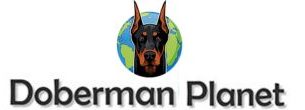
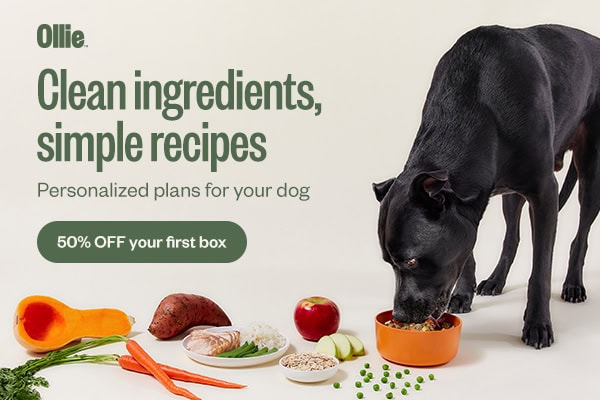

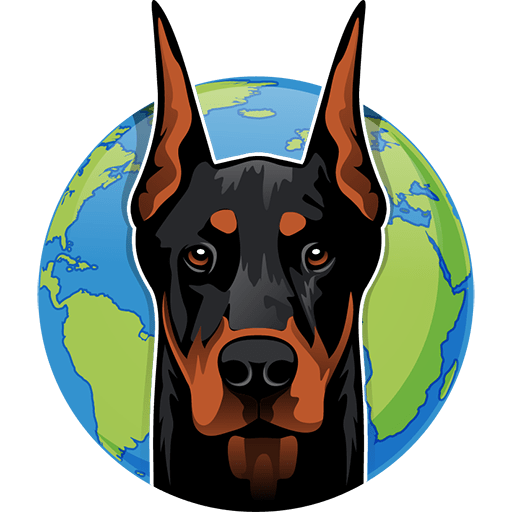
How old calcium should be given to the doberman?
Hi John ,
I like your videos and this website!
I’m a new Doberman owner( I have to wait 3 more weeks) and I want to know what is better for his health… what Dobermans puppy eat ?
Commercial food? Raw meat? Both? Vegetables?
Thanks
Demis from Denver Colorado
the amount of food servings, is it for both American and European?
Europeans are naturally bigger and muscular.
In general, you’re right that the Europeans are bigger and more muscular but I’d still say it should be more dependant on your individual dog’s activity levels and muscle mass. There are some very muscular American Dobermans and some thinner Europeans so I’d say it should be based on the specific dog. Don’t be afraid to start at one amount and slowly adjust to get the correct amount dialed in.
All this talk about feeding a dobie raw uncooked meat but nothing about cooked meat cept’ kibble. I feed mine, minced beef & Lamb added with 20% organs and bone bought from a local supplier. Boiled with either broccoli, potatoes, spinach or carrots twice daily with extra water so that after cooking it’s becomes Stew.
My dobie, a European pedigree male is 14 months old and is pretty large with a lovely bodyline and superb coat. He was fed upvote button after an appropriate puppy kibble for 8 mths with 3 meals daily then to his present diet of his favourite beef/mutton stew. He’s fine and dandy and in good health. So it’s the safe diet that you feed your dobie that makes him what he grows up to be, regardles.
I’m an ardent advocate of Not feeding raw meat with blood and all in the best interest of my dobies health.
I’m sharing this as another option of clean and healthy feeding for fellow dobie lovers.
Anthony Wilding is certainly a very thoughtful and kind owner. Mia is not subjected to an unhealthy living lifestyle. Eating a diet just like her owner does. She was brought up in a civilized manner befitting her as man’s best friend and family member.
Unlike the many dogs we have owned over more than 50 years our Doberman (Mia) liked to try every type of food.
She would regularly eat salad vegetables (especially cucumber and tomatoes), walnuts, grapes (we did not know these were forbidden), carrots and mashed potatoes were favourites as was cheese and anything else we were eating. A small bowl of warmed milk or milky tea was a weekend treat.
Anything other than regular dog food and the freshly roasted chicken which was one of two meals each day) was seen as a treat so offered only occasionally in small quantities.
We didn’t eat raw meat then or now so nor the Doberman.
Humans are told to eat a varied diet and nothing to excess it worked for Mia who (as previously reported) lived a very very long and active life and celebrated her sixteenth birthday before leaving us.
Thank you so much for sharing Anthony! That’s amazing that she lived to the age of 16. Such a great long life—you were doing something right!